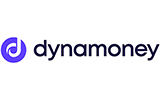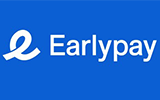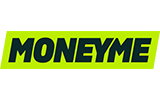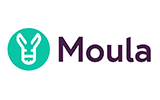What type of finance is best for buying a business?
Secured loans for buying a business
A secured business loan is likely to be the most cost-effective option for financing the purchase of an existing business.
To apply for a secured business loan, you’ll need an asset to use as collateral. This could be a personal asset, such as your home, or an asset from a business you already own.
It may also be possible to get a loan secured against the business you are buying if it meets the lender’s criteria.
Unsecured loans for buying a business
You could also consider an unsecured business loan to finance the business purchase. You won’t need an asset to directly secure the loan and the funds can be used with fewer restrictions.
Unsecured business loans are riskier for the lender. This is why they have higher interest rates and you may not be able to borrow as much.
On the plus side, they may be faster to get approval for, provided you can demonstrate capacity to repay the loan.
Other options for financing a business purchase
Vendor finance
With vendor finance, you only pay part of the sale price up front and then pay the rest to the seller (plus interest) in instalments. Essentially the seller is financing part of the sale.
Peer-to-peer finance
This is similar to business finance provided by a bank, but the funds are provided by investors looking for a return on their money. There are several peer-to-peer lenders in Australia who facilitate loans for business purposes.
Interest rates on loans to buy a business start from as low as 6.39% p.a. among providers on Money.com.au’s lender panel, but can vary massively between lenders and the borrower’s circumstances. Our analysis shows that the average (median) rate on a loan to buy a business in September 2025 is 11.77% p.a.
How to qualify for a loan to buy a business
You can apply for finance to purchase an existing business from a bank, credit union, online lender or peer-to-peer lender. The eligibility criteria will depend on which one you choose and the specific provider.
Whatever avenue you take, the lender will assess your eligibility based on information about you and your current business (if you are already a business owner), and the business you’re buying.
The vast majority (73%) of businesses applying for a loan to purchase another business have been operating for at least three years, our data shows. These businesses have made it through the challenging first few years and are primed for expansion.
Information about you and your existing business
The lender will ask you to demonstrate that:
- You are an Australian citizen or permanent resident
- You have the necessary qualifications and experience to run the business you intend to purchase successfully
- You do not have an major issues in your credit history (if you do, some lenders offer bad credit business loans)
- Your personal income, assets and liabilities demonstrate your capacity to borrow (there are low doc business loans available for borrowers who cannot provide standard documents as proof)
- The lender may also want to know how much of your own money you are investing into the business
If you’re a business owner already, lenders will want to see that your business is in a strong financial position based on its revenue and balance sheet. Among the thousands of loans we analysed, the largest group of borrowers report over $51,000 in monthly revenue (41.9%), and they secure the highest loan amounts – around $1 million on average.
Your track record in business matters

Phil Collard, Money.com.au Business Finance Expert
"Most lenders will want to see at least 12 months worth of GST. Some lenders might have an even higher hurdle when it comes to time trading or you’ll pay a higher interest rate if you do qualify. So if you're trading for less than three years, you're not going to get their top pricing."
Phil Collard, Money.com.au Business Finance Expert
Information about the business you’re buying
Expect a lender to ask for the following information about the business you plan to buy:
- How is the business structured?
- Where is it located?
- How long has it been in business and in what industry?
- What is the turnover and profit of the business?
- How healthy is its current cash flow?
- What assets does the business own?
- What current debts does it have?
As well as this, the lender will almost certainly ask to see a detailed business plan showing forecasts for revenue, cash flow and other key indicators for the first two years of operations.
If you're financing a franchise purchase, the requirements may be slightly different.
What will your business plan need to show?
The business plan for the business you intend to buy will be crucial to getting your finance approved. Ideally it should show:
Competitor analysis
Detailed analysis of the industry, market and competitors, plus the position of the existing business within the market.
Challenges
Any significant challenges or threats faced by the business, and detailed strategies for addressing them.
Financials
Clear and transparent figures relating to business turnover and cash flow, and how you plan to manage cash flow to maintain or improve profitability.
Your goals
Short, medium, and long-term business goals, including the timeframes for reaching each and how you plan to measure business performance.
Operational planning
How you plan to operate the business, to ensure you make the most of current resources and assets to remain competitive in your market.
How to assess a business that’s up for sale
Why is the vendor selling the business?
Ideally, the owner will be looking to retire or cash out of a healthy business to pursue other interests. If they are selling because they need to clear personal debt they required to fund the business, this could be a major red flag.
Is there a rush to sell the business?
There could very well be legitimate reasons for an owner wanting a speedy cash out. But you’ll want to make sure this isn’t a tactic to rush a sale to avoid scrutiny of the business accounts. If there’s a legitimate reason for a rush to sell, you could leverage this when making an offer.
How are the business finances looking?
The three key financial statements used by businesses that you’ll want to understand are its balance sheet, profit and loss statement and cash flow statement. If you're not confident in navigating these, get the help of an accountant.
Is the business being sold in full or in part?
Will you have complete control and freedom in how you operate the business? If it's a part sale, it may be that the owner wants to continue receiving some benefit (income) from the business, while relinquishing control of the daily operations.
What do the business’s employees and customers think?
Visit the business and speak to employees and customers. Ask them what they like and dislike about the business, or if there have been any changes in how the business operates recently.
What are the market conditions?
Look at competitors, both locally and overseas, and see how the business compares. Assess the potential for growth. Even if you have experience with business finances and analysis, it’s a good idea to get independent expert advice.
Is buying an existing business a good idea?
Pros
- Start operating immediately
- Established customer base
- Existing systems, facilities, equipment
- Potentially less risky if you buy well compared to starting from scratch (survival rates among newly-established business are generally low)
Cons
- More expensive up-front cost
- Extensive due diligence required
- Not all the risks will be apparent before you take over
- Existing businesses can be difficult to value as some intangible factors (like the brand, reputation and customer loyalty) can be almost impossible to objectively assess
Ready to compare business loans?
Get your best offers from multiple lenders. There's no obligation and checking your rates won't impact your credit score.






















